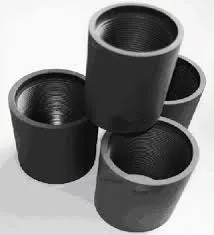- Afrikaans
- Albanian
- Amharic
- Arabic
- Armenian
- Azerbaijani
- Basque
- Belarusian
- Bengali
- Bosnian
- Bulgarian
- Catalan
- Cebuano
- Corsican
- Croatian
- Czech
- Danish
- Dutch
- English
- Esperanto
- Estonian
- Finnish
- French
- Frisian
- Galician
- Georgian
- German
- Greek
- Gujarati
- Haitian Creole
- hausa
- hawaiian
- Hebrew
- Hindi
- Miao
- Hungarian
- Icelandic
- igbo
- Indonesian
- irish
- Italian
- Japanese
- Javanese
- Kannada
- kazakh
- Khmer
- Rwandese
- Korean
- Kurdish
- Kyrgyz
- Lao
- Latin
- Latvian
- Lithuanian
- Luxembourgish
- Macedonian
- Malgashi
- Malay
- Malayalam
- Maltese
- Maori
- Marathi
- Mongolian
- Myanmar
- Nepali
- Norwegian
- Norwegian
- Occitan
- Pashto
- Persian
- Polish
- Portuguese
- Punjabi
- Romanian
- Russian
- Samoan
- Scottish Gaelic
- Serbian
- Sesotho
- Shona
- Sindhi
- Sinhala
- Slovak
- Slovenian
- Somali
- Spanish
- Sundanese
- Swahili
- Swedish
- Tagalog
- Tajik
- Tamil
- Tatar
- Telugu
- Thai
- Turkish
- Turkmen
- Ukrainian
- Urdu
- Uighur
- Uzbek
- Vietnamese
- Welsh
- Bantu
- Yiddish
- Yoruba
- Zulu
pipe mill
The Significance of Pipe Mills in Modern Industry
In the realm of modern manufacturing, few facilities are as crucial as the pipe mill. These mills serve as the backbone for various industries, producing pipes that are essential for a plethora of applications, ranging from oil and gas to construction and water supply. As the demand for durable and efficient piping solutions grows, so does the importance of pipe mills in enhancing productivity and ensuring the integrity of engineered systems.
Understanding Pipe Mills
At their core, pipe mills are specialized factories dedicated to the production of pipes made from materials such as steel, aluminum, and plastics. The process begins with raw materials, which are transformed into semi-finished or finished products through various techniques. Typically, there are two main types of pipe mills seamless and welded.
1. Seamless Pipe Mills These mills utilize methods like extrusion and rotary piercing, which allow for the creation of pipes without seams. The advantage of seamless pipes lies in their strength and resistance to pressure, making them ideal for high-stress environments, such as oil drilling and high-pressure gas transport.
2. Welded Pipe Mills In contrast, welded pipe mills fabricate pipes by rolling sheets of metal into tubular shapes and welding the edges together. Though they may not possess the same level of strength as seamless pipes, welded pipes are more cost-effective and can be produced in larger quantities, making them suitable for applications in construction and plumbing.
Technological Advancements
The evolution of pipe mills has been significantly influenced by technological advancements
. Automation, artificial intelligence, and advanced materials handling systems are now commonplace in modern pipe mill operations. These technologies enhance precision, reduce waste, and improve overall efficiency.For instance, computerized systems allow for real-time monitoring of production processes, ensuring that any defects are detected early. Additionally, advancements in welding technology have led to improved joint integrity, further enhancing the reliability of welded pipes. Furthermore, the development of high-strength materials has enabled pipe mills to offer products that meet the rigorous standards of contemporary engineering projects.
pipe mill

Environmental Considerations
While the demand for pipes continues to grow, so too does the emphasis on environmental sustainability. Pipe mills are increasingly adopting Eco-friendly practices, such as recycling scrap materials and utilizing energy-efficient production methods.
Moreover, with the increasing push for green construction, there is a rising demand for pipes manufactured with sustainable practices. This can include the use of recycled materials or the creation of pipes that comply with environmental standards. Many pipe mills are now investing in R&D to produce eco-friendly options that meet the needs of environmentally conscious consumers.
The Global Market
The global market for pipe production is expanding rapidly, driven by infrastructure development in emerging economies, advancements in the oil and gas sector, and increased urbanization. Countries like India, China, and Brazil are witnessing significant investments in pipeline infrastructure, creating a heightened need for both seamless and welded pipes.
Pipe mills are not only adapting to the changing demands of the market but are also strengthening their supply chains to address global challenges. This includes sourcing raw materials more sustainably and ensuring that products meet international quality standards.
Conclusion
In conclusion, pipe mills play an integral role in the modern manufacturing landscape, providing essential products that support various industries. As technology continues to advance and environmental regulations become stricter, pipe mills must evolve to meet new demands. By embracing innovation and sustainability, pipe mills can continue to thrive, ensuring that they not only contribute to economic growth but also do so responsibly. The future of pipe production looks promising, bolstered by the industry's capacity to adapt, innovate, and meet the challenges of a rapidly changing world.
-
Tubing Pup Joints: Essential Components for Oil and Gas OperationsNewsJul.10,2025
-
Pup Joints: Essential Components for Reliable Drilling OperationsNewsJul.10,2025
-
Pipe Couplings: Connecting Your World EfficientlyNewsJul.10,2025
-
Mastering Oilfield Operations with Quality Tubing and CasingNewsJul.10,2025
-
High-Quality Casing Couplings for Every NeedNewsJul.10,2025
-
Boost Your Drilling Efficiency with Premium Crossover Tools & Seating NipplesNewsJul.10,2025







